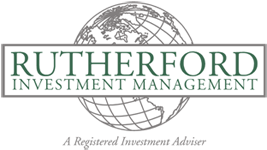Following a 10-percent drop in June, the overall markets have entered bear territory. The numbers were the worst for the month of June since the Great Depression. Because they’re a leading indicator of the economy’s standing, a bear market usually signals further erosion. With the economy already under stress due to housing and credit market issues, any more erosion could be serious.
Even worse, it was believed for a while that the global economy would be better and subsequently buoy the U.S. economy; however, signs now seem to point to a global slowing. After a big run-up last year, stocks in Shanghai were down 21 percent for the quarter. For the year, Shanghai is down 48 percent, and now at 16-month lows. Year to date, India is down 33 percent, while London, Frankfurt and Paris are down between 13 and 21 percent. Japan recently had 12 straight days of declines. Some analysts now see the market testing 2002 lows, which would imply further sharp declines in the averages.
Housing and credit market problems are further heightened by high oil prices, a weak dollar and the threat of inflation. Indeed, Fed speakers have talked a lot recently, probably too much, about the threat of inflation and the need to raise interest rates. At the last Fed meeting, the policy statement had something to offend everyone; however, the emphasis was on the risk of inflation. Normally under these circumstances one would expect the Fed to raise interest rates, which would have the effect of strengthening the dollar. But because of the fragile economy, the Fed cannot raise rates now. Indeed, in spite of all the Fed talkers, the board seemed to move interest rate increases further into the future, which consequently lowered the dollar and raised the price of oil.
After the Fed decision, Goldman Sachs analysts discovered that Citibank and General Motors had problems and placed them on their conviction sell list. (One wonders how they learned this startling information.) This was more than the markets could handle, and they sold off. With each downturn, more problems are uncovered. Citibank has now lost 66 percent of its value since Jan. 1, 2007, and Washington Mutual has lost 87 percent of its value in the same time frame. For the quarter, General Motors dropped 40 percent and now trades at levels not seen since the 1950s. Also, Bank of America fell 37 percent for the quarter.
All financials were down 25 percent for the quarter, piling atop already steep declines. Defensive sectors such as health care and consumer staples were down. Even utilities dropped 5 percent. High-yield bonds were the only ones in the bond sector to rise.
Inflationary pressures are high. In the current quarter, prices increased 40 percent for oil, 29.7 percent for corn and 28.1 percent for natural gas. Government statistics show inflationary risk, but also purport to show inflation under control. Few people still believe the government’s position. Economists at Merrill Lynch estimate global inflation at 5.5 percent while actual rates are running at 6.5 percent or higher in emerging markets. The European Central Bank has raised interest rates to stem inflationary pressures in Europe.
Not just energy costs, but food costs are also increasing. Food shortages have appeared and even governments are hoarding food.
We cannot mount a recovery in the U.S. until home prices begin to recover. While Congress and the executive branch disagree about over who is to blame, mortgage foreclosures surge by 15,000 per day. The recent jobs report shows a non-farm payroll loss of 438,000 jobs since the year began.
At this point an investor should remain defensive. U.S. manufacturing expanded in June for the first time in four months. But the new report shows more job losses. Europe seems to be slipping into a recession, so U.S. manufacturers that have benefited from the weak dollar, may see sales slip again. At the moment, energy and food are strong, but a strong dollar could change all that. Expect interest rates to rise before the year ends, with a market upturn late in 2008 or early 2009. The market will anticipate the economic recovery, so we will likely see the market turn up even before the economy.
